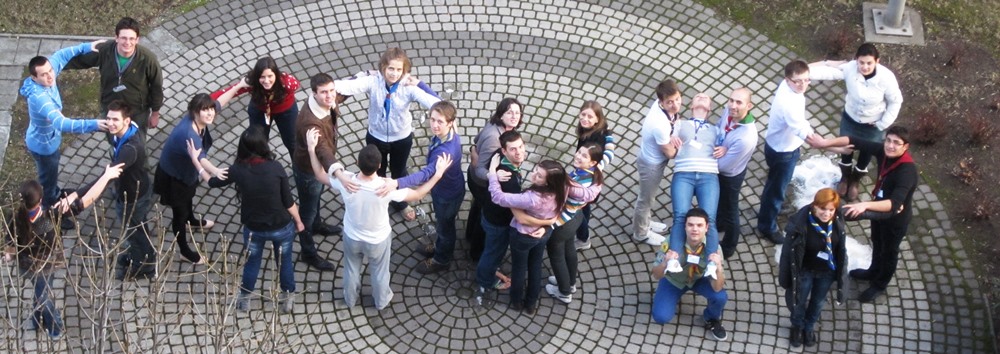Human Rights Education in the Council of Europe
The Youth Department is not alone in advancing human rights education in the Council of Europe member states.

The Education Department supports the development of policies and practice promoting a culture of democracy and human rights through education in the 50 States Party to the European Cultural Conventions and runs a broad range of capacity building and co-operation programmes, in a lifelong learning perspective.
Key instruments include the European Cultural Convention (art.2), the Reference Framework of Competences for Democratic Culture, the Charter on Education for Democratic Citizenship and Human Rights Education and the Recommendation on ensuring Quality Education.
Reference Framework of Competences for Democratic Culture
The Council of Europe Reference Framework of Competences for Democratic Culture (RFCDC) is a set of materials that can be used by education systems to equip young people with all of the competences that are needed to take action to defend and promote human rights, democracy and the rule of law, to participate effectively in a culture of democracy, and to live peacefully together with others in culturally diverse societies.
It is intended for use by education policy makers, especially those working within ministries of education, and by education practitioners in all sectors of education systems, from pre-school through primary and secondary schooling to higher education, including adult education and vocational education. The RFCDC provides a systematic approach to designing the teaching, learning and assessment of competences for democratic culture, and introducing them into education systems in ways that are coherent, comprehensive and transparentEducation for Democratic Citizenship and Human Rights Programme
The programme Education for Democratic Citizenship and Human Rights (EDC/HRE) focused on supporting the promotion of democracy and human rights through education, and accordance with the objectives and principles of the EDC/HRE Charter. Examples of cooperation activities include the network of EDC/HRE coordinators and the Human Rights and Democracy in Action EU/CoE Joint Programme.
Legal Professionals
The European Programme for Human Rights Education for Legal Professionals (HELP) supports the Council of Europe (CoE) Member States in implementing the European Convention on Human Rights (ECHR) at the national level, in accordance with the Committee of Ministers Recommendation (2004) 4, the 2012 Brighton Declaration and Resolution 1982 (2014) of the Parliamentary Assembly. This is done by enhancing the capacity of judges, lawyers and prosecutors of all 47 member States to apply the ECHR in their daily work.
Human Rights Education with children
Compasito, the manual on human rights education with children was published by the Council of Europe Youth Department as a complement to Compass. The manual is a starting point for educators, teachers and trainers who want to practice human rights education with children aged from 5 to 13 years. The book familiarises the reader with the key concepts of human rights and children's rights and provides substantial theoretical background to 13 key human rights issues, such as democracy, citizenship, gender equality, environment, media, poverty, and violence.
Compasito was developed in close co-operation with the Children’s Rights Division of the Council of Europe. The Children’s Rights Division works with governments, civil society, the European Union, other international organisations and many other stakeholders to uphold and expand the protection of children’s rights in Europe.
Joint Programme “Democratic and Inclusive School Culture in Operation (Disco)
The Joint Programme “Democratic and Inclusive School Culture in Operation (DISCO)” was launched in May 2013 under the name "Human Rights and Democracy in Action" by the Council of Europe and the European Commission. It provides funding to enable at least three States party to the European Cultural Convention to cooperate on projects of common interest within the field of education for democratic citizenship and human rights education (EDC/HRE).
The basis of each project is to make information on current democratic citizenship and human rights education practices in the participating countries available to help improve them in each of the countries.
Commissioner for Human Rights.
The Commissioner for Human Rights is an independent and impartial non judicial institution established in 1999 by council of Europe to promote awareness of and respect for human rights in the 47 Council of Europe member states.
The Commissioner provides advice and raises awareness of human rights issues through the publication of thematic documents and organisation of events and workshops.


